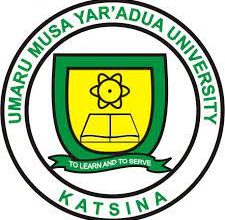
In this guide, I will you how to become a Lawyer in Nigeria from Primary school, secondary school, university to Law school. To become a lawyer in Nigeria is not easy. It is a long ride from the Nursery/primary school all the way through to the Nigerian Law School before one qualifies to practise law and make big money like our Senior Advocates of Nigeria. This essay is a sufficient, but not exhaustive, exposition into the processes one must go through to become a qualified legal practitioner in Nigeria.
George Herbert, a 17th century Anglican priest, orator and poet once quipped: “Deceive not thy physician, confessor, nor lawyer.” This statement shows the importance of these professionals to humanity. In fact, it is often said that the three noblest professionals in the World are Medical Doctors, Priests and Lawyers. I couldn’t agree more with that. This essay is particularly about Lawyers. Thinking of becoming a lawyer? Great idea!
👉 Relocate to Canada Today!
Live, Study and Work in Canada. No Payment is Required! Hurry Now click here to Apply >> Immigrate to CanadaIn Nigeria, primary school pupils and secondary school students are often asked what they would like to become when they grow. The usual replies are: “I want to become a doctor.” Or “I want to become a lawyer.” This is not surprising as even most parents want their children to become medical doctors or lawyers. However, nothing good comes easy.
How to Become a Lawyer in Nigeria – The Ride
Nursery/Primary School Education Needed to Become a lawyer in Nigeria
Of course, education in Nigeria usually starts from the Nursery school where pupils spend three years (Nursery 1, 2 and 3). After this, the primary education follows.
Pupils are to spend 6 years in the primary school though most pupils usually proceed to the Secondary School after Primary 5 leaving out Primary 6.
Subjects taught at the primary level include Mathematics, English Language, Social Studies, Religious Studies, African languages and Integrated Science. At the completion of the primary school, pupils are awarded a school-leaving certificate.
Thereafter, pupils are required to take a Common Entrance Examination to qualify for admission into Federal, State or Private Secondary Schools.
Secondary School Education Needed to Become a lawyer in Nigeria
At the Secondary School level, students spend six years. Three years at the Junior Secondary School and three at the Senior Secondary School. Most subjects taken at the Junior Secondary School are the same as those taken at the primary school, just advanced and wider in scope.
Some new subjects like Introductory Technology and Computer Studies are added. Students who pass the Junior level proceed to the Senior Secondary School. At this point, a career path has to be chosen. There are three classes: Art, Science, and Commerce. Students who aspire to become lawyers join the Art class.
Core subjects taken at this stage include Mathematics, English Language, Religious Studies, Government, Literature-in-English, Economics etc. At the completion of the Secondary School, a student must have sat for either GCE, WAEC or NECO ordinary level examinations. Students must also sit for the Unified Tertiary Matriculation Examination (UTME).
👉 Relocate to Canada Today!
Live, Study and Work in Canada. No Payment is Required! Hurry Now click here to Apply >> Immigrate to CanadaUniversity Admission Requirements Needed to Become a lawyer in Nigeria
In Nigeria, only Universities offer the study of law and to qualify for admission, a student must have at least five credits at the ordinary level; and must get a score of at least 200 out of 400 in UTME. Having satisfied these requirements, there will be a screening process at the University picked by the candidate. After completing all the processes, successful students are given admission to study law for 5 years.
For admission through Direct Entry, candidates must possess two A Level passes in Arts or Social Science subjects. Candidates with National Certificate in Education (NCE) or Ordinary National Diploma (OND) or even a prior university degree stand to be admitted through Direct Entry.
University Education Needed to Become a lawyer in Nigeria
The training of a lawyer starts properly at the University. Law students take compulsory courses such as Nigerian Legal Method, Nigerian Legal System, Law of Contract, Constitutional Law, Criminal Law, Law of Tort, Commercial Law, Law of Evidence, Company Law, Land Law, Law of Equity and Trust and Jurisprudence. Other courses which are electives are Labour Law, Law and Medicine, Intellectual Property Law, Tax Law etc. A law student must obtain at least a pass grade in each course to obtain a LLB degree. Faculties of law in most Universities offer basically the theoretical aspects of law although there are usually Moot and Mock Committees organized by students to intimate themselves a little about the practice of law. The main vocational training for prospective lawyers is given at the Nigerian Law School.
The Nigerian law School Training Needed to Become a lawyer in Nigeria
Further, after obtaining the LLB degree, prospective lawyers have to enrol at the Nigerian Law School for vocational and procedural training in the law practice. The Council of Legal Education is in charge of the Nigerian Law School. The Council makes it mandatory that every person who intends to practise as a lawyer in Nigeria must attend the law school.
The Nigerian Law School is open to graduates of Law from foreign universities in Common Law countries i.e. countries colonized by Britain. There are two programmes at the Nigerian Law School: the Bar Part I and the Bar Part II programmes.
The Bar Part I is specifically for foreign trained students with the LLB degree. It is also open to persons who have passed the final Bar Examinations of the English, Scottish or Irish Bar. The programme is meant to introduce them to the general principles of the Nigerian law since they will practise here.
Courses taken include: The Nigerian Legal System, the Nigerian Land Law, the Nigerian Criminal Law and the Nigerian Constitutional Law. The Bar Part I programme lasts for six months after which successful students will join their Nigerian trained counterparts for the Bar Part II.
The Bar Part II programme is for both the Nigerian trained students and the foreign trained ones. Students undergo intensive training to equip them with the relevant knowledge, skills and ethics to enable them practise in Nigeria.
The core courses here include: Criminal Litigation, Civil Litigation, Corporate Law, Property Law, Law in Practice. The Bar Part II features both a knowledge-based training which entails lectures, quizzes, tests, simulation clinics and activities and so on; and a skill-based training which entails Moot and Mock trials and some weeks of placement in Law Courts and Law firms where students experience the real world practice of law.
In addition, students undergo training on ethics such as comportment, deportment, dressing and general mannerism peculiar to the legal profession; and must attend three formal law dinners. The purpose of the law dinners is to inculcate the habits of learned gentlemen into the students and to provide opportunities for students to meet members of the legal profession and thereby learn from them some of those intangible attributes and ethics of the profession which can only be acquired by personal social contact.
Furthermore, all Bar Part II students must sit for the Bar Finals Examination which is an assessment based on all the lectures and practical trainings imparted at the law school. Successful students at the Bar Finals Exams receive a Qualifying Certificate from the Council of Legal Education.
This Qualifying Certificate must be presented to the Body of Benchers which is the body in charge of the legal profession in Nigeria. The Body of Benchers also organizes the Call to Bar ceremony; a ceremony which formally initiates successful candidates into the Nigerian Legal Profession.
At this ceremony, a Certificate of Call to Bar is issued to all the prospective lawyers who must appear in their Barrister robes. After the Call to Bar ceremony comes the enrolment of the names of the newbies into the Roll of the Legal Practitioners which is maintained by the Chief Registrar of the Supreme Court of Nigeria. Section 7(1) of the Legal Practitioners Act states that a person shall be entitled to have his name placed on the Roll of Legal Practitioners if and only if he has been called to the Nigerian Bar by the Body of Benchers, and he produces a Certificate of the Call to Bar to the Chief Registrar of the Supreme Court of Nigeria. While section 2(1) of the Act stipulates that a person shall be entitled to practise as a Barrister and Solicitor in Nigeria if his name is on the Roll of Legal Practitioners. Therefore, at this point, a lawyer can advise clients, represent them in court and draft legal documents.
It must be noted that when a legal practitioner in Nigeria commits an act of gross misconduct violating the core principles and ethics of the legal profession, his name will be struck off the Roll of Legal Practitioners: hence, debarring him from practising as a lawyer. Interestingly, everyone at the Bar is regarded as a gentleman irrespective of their gender.
Read Also: 6 Tip to Succeed In the Nigerian Law School
Finally, a right of audience would be granted a lawyer as long as he is dressed appropriately in his Barrister robe and wig when appearing before a court.
Annual practicing fee for Lawyers in Nigeria
All legal practitioners are also mandated to pay an annual practising fee which varies depending on their status and age at the Bar. For instance, Senior Advocates of Nigeria are required to pay #50 000; legal practitioners of at least fifteen years pay #25 000; legal practitioners of five years or more standing but less than ten years post call pay #10 000 while those of less than five years pay #5 000. Non-payment is a ground of denial of the right of audience before a judge in a court of law.
Read Also: 10 Tips to Succeed as a Young Lawyer In Nigeria
And that’s just how one becomes a lawyer in Nigeria! Truly, becoming a lawyer in Nigeria is no mean feat. It takes at least a total of 20 years of education, training and hardwork to qualify as a lawyer. So when you see a qualified lawyer, respect him!







